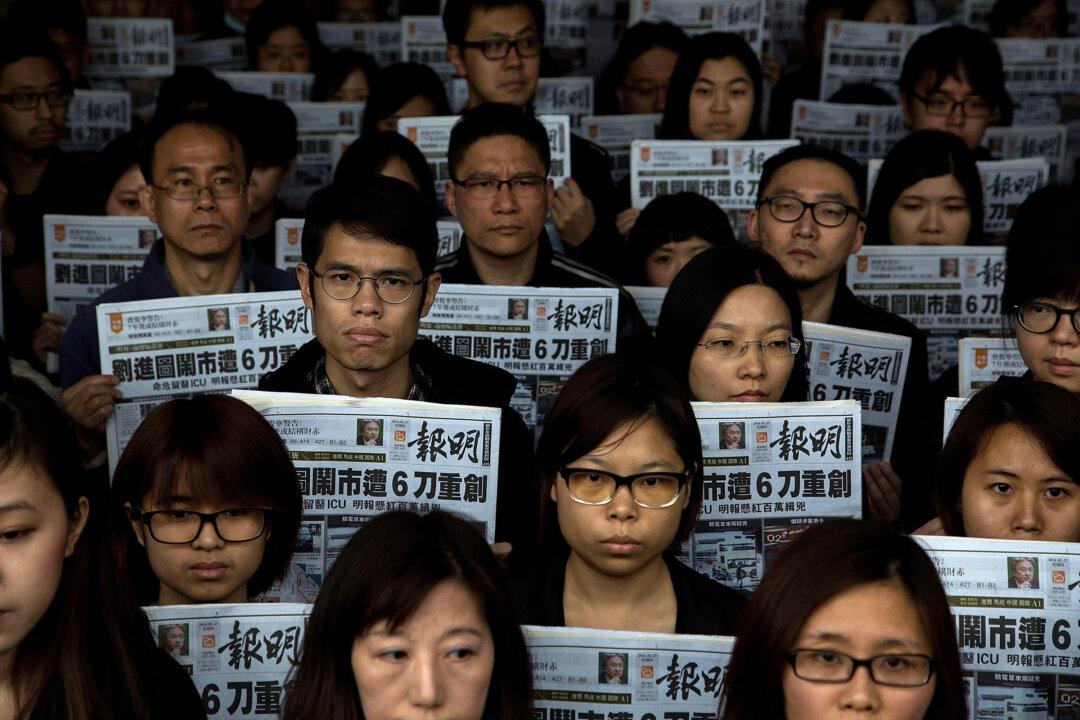In a time of declining press freedoms in Hong Kong, the staff of a local broadsheet has called out their editor’s last-minute command to change the paper’s lead article.
The Ming Pao Staff Association issued a statement Monday on their Facebook page detailing chief editor Chong Tien Siong’s seemingly arbitrary decision to pull the day’s lead story—a report on recently released Canadian embassy memos on the 1989 Tiananmen Square Massacre—and replace it with an article about Alibaba CEO Jack Ma’s HK$1 billion ($129 million) fund for young Hong Kong entrepreneurs.
Chong, who was supposedly on leave, showed up at the Ming Pao office Sunday and joined the evening’s editorial team meeting. Chong didn’t raise objections when the editorial team agreed to make the Tiananmen story the lead.




